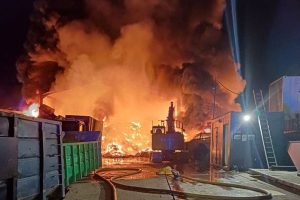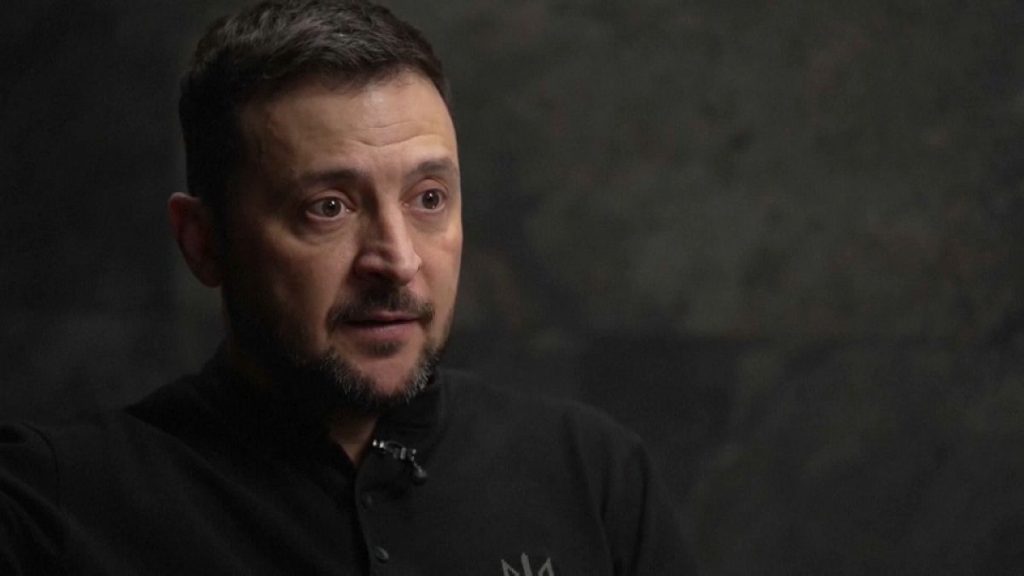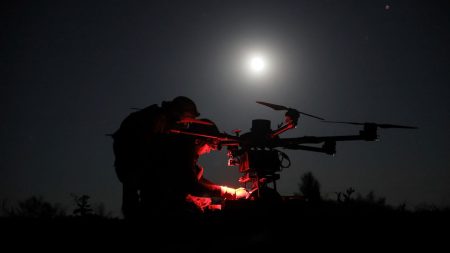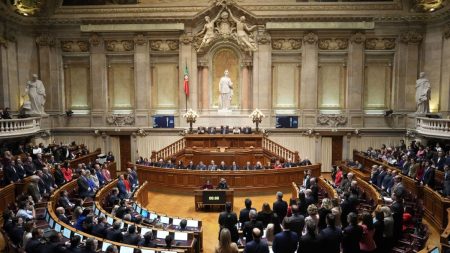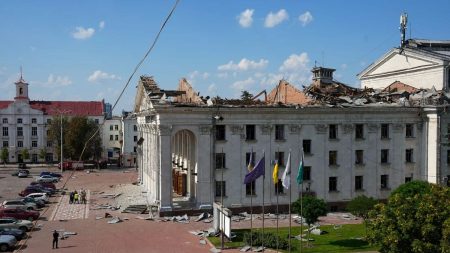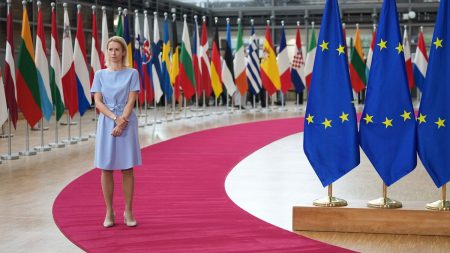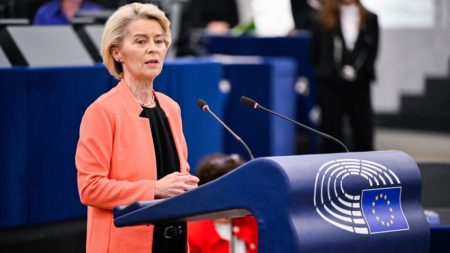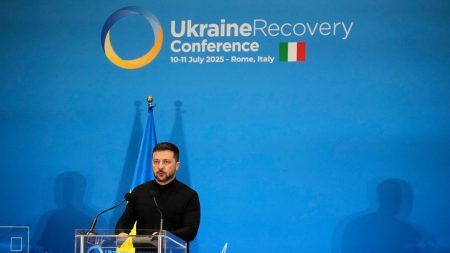Ukrainian President Volodymyr Zelenskyy recently articulated the legal and constitutional reasons for Ukraine’s bid to join NATO while on a Sky News interview. He stressed that Ukraine cannot legally acknowledge occupied territories as Russian territory because doing so would contravene the nation’s constitution. Zelenskyy emphasized that from a legal standpoint, it is impossible for Ukraine to recognize any part of its territory as belonging to another state, which underscores the necessity of NATO membership based on the country’s internationally recognized borders. He argued that accepting only part of Ukraine into NATO would unjustly legitimize the Russian occupation by implying that occupied areas are no longer Ukrainian. Therefore, he contended that NATO’s recognition must be comprehensive and include all of Ukraine’s territory, a sentiment reflecting a staunch commitment to the principle of territorial integrity.
The potential for Ukraine to join NATO is a contentious issue, particularly for the Kremlin, which has vehemently opposed NATO’s expansion in Eastern Europe. Russian President Vladimir Putin has long claimed that NATO’s growth threatens Russian security, which serves as a significant rationale behind Moscow’s aggressive military actions in Ukraine. Zelenskyy’s assertion that NATO membership could facilitate a resolution to the conflict highlights a broader strategy not just for military alignment but also for diplomatic negotiations aimed at reclaiming territories under Russian control. This approach suggests that NATO could provide the necessary support and deterrence to Russia, thus enabling Ukraine to engage in talks from a position of strength, rather than vulnerability.
The situation is further complicated by recent military developments, including large-scale Russian air attacks against Ukrainian infrastructure. In a report following Zelenskyy’s interview, Ukrainian authorities revealed that nearly 200 drones and missiles targeted critical sites, affecting the power supply and essential services for over a million civilians. Russia’s ongoing strategy has involved targeting Ukraine’s energy sector, particularly during the winter months, to disrupt water and heating supplies. Such assaults not only aim to break the spirit of the Ukrainian populace but also serve to weaken Ukraine’s military production capabilities at a critically important time in the conflict. The juxtaposition of these military escalations with diplomatic aspirations underscores the dire circumstances Ukraine finds itself in while it seeks both security and sovereignty.
In the broader geopolitical context, Russia’s alignment with North Korea signals a shift in international relations. Kim Jong-un has publicly supported Russia’s right to defend itself against Ukraine’s counterstrikes utilizing Western weapon systems, a sentiment that echoes the rhetoric emerging from Moscow. This relationship is being bolstered through strategic military cooperation agreements intended to stabilize the region amid ongoing tensions. Notably, the North Korean regime’s engagement with Russia represents a rekindling of ties that may enhance military collaboration, particularly as North Korea seeks to emerge from international isolation while simultaneously contributing to the Kremlin’s wartime efforts.
The implications of this strengthening relationship between North Korea and Russia extend beyond the immediate conflict in Ukraine. In the backdrop of their alliance, the United States and its allies are closely monitoring North Korea’s actions, particularly concerning troop deployments to Russia. Reports indicate that over 10,000 North Korean soldiers have been dispatched to support Russian military operations, a concerning development that raises questions about the capabilities and strategic directions of both countries. South Korea’s proactive approach to the situation, epitomized by President Yoon Suk-yeol’s discussions with a Ukrainian delegation, highlights the need for regional countermeasures against the increasing military collaboration between North Korea and Russia, indicating that this geopolitical landscape is not just confined to Europe, but has far-reaching implications globally.
As the conflict between Ukraine and Russia continues to evolve, the interplay among NATO’s potential expansion, the Kremlin’s aggressive posture, and the emerging North Korean partnership paints a complex picture. Zelenskyy’s appeals for NATO membership, rooted in constitutional principles, reflect Ukraine’s unwavering stand against territorial concessions while inviting broader international support. Simultaneously, the direct challenges posed by ongoing military actions and new international partnerships complicate the battleground, where military strategy, diplomatic negotiations, and global alliances are set against a backdrop of real human suffering and geopolitical stakes. Each of these dimensions contributes to the urgent call for a solution that recognizes and respects Ukraine’s sovereignty while navigating the treacherous waters of international conflict and cooperation.

